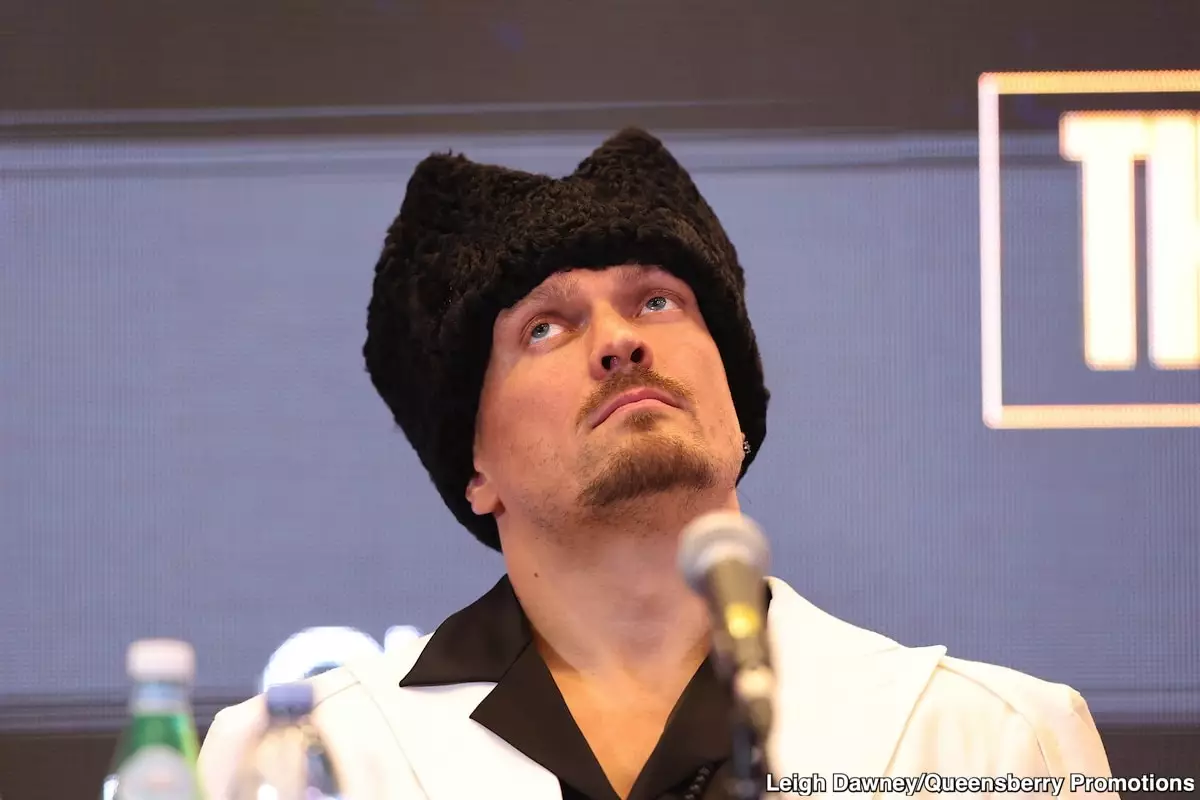In the tumultuous world of heavyweight boxing, few figures generate as much buzz and blowhard bravado as Tyson Fury. Recent comments from the self-declared Gypsy King reveal an unmistakably inflated view of the sport’s landscape, suggesting that a 20-year-old contender, Moses Itauma, will dominate the division and eradicate the older champions like a biblical scourge. While confidence is essential to the combat sport, Fury’s declarations border on overconfidence, often veering into delusion. The tendency of boxing insiders to proclaim “the future” when young fighters shine momentarily is a hazardous game—it risks future disappointment and diminishes the accomplishments of those who have risen through years of adversity and skill.
Fury’s dismissal of established champions such as Oleksandr Usyk, Anthony Joshua, and others as “spent forces” reeks of hubris. Such assessments ignore the nuances behind a fighter’s career longevity, technical prowess, and ring intelligence. To brand fighters like Usyk, a tactician and consummate athlete, as mere relics underestimates the depth of their talent and resilience. The sweeping statement that the division merely needs to “clear out the old men” is simplistic and dismissive of the hard-won legacies that these athletes represent.
What Makes Usyk Exceptional—And Why Itauma Still Has a Long Way to Go
Labeling Usyk as “past his prime” is both inaccurate and disrespectful to his tactical mastery and endurance. Usyk’s footwork, ring IQ, and ability to adapt mid-fight make him a unique puzzle for any opponent—qualities that are not erased simply because of age. He’s consistently proven that skill, not just brute strength or youth, wins fights. Fury’s claim that Usyk is “just another older fighter” ignores the nuances of technical mastery that have distinguished him from the pack.
Meanwhile, Moses Itauma, though promising, is still a raw talent, early in his career. Calling him “the future of boxing” might be a compelling headline, but it’s a premature curtain call. As experienced fighters have demonstrated time and again, raw talent must be tempered with grit, strategic learning, and resilience—none of which are guaranteed at 20 years old. Making sweeping predictions based solely on a couple of impressive performances ignores the steep learning curve necessary for real heavyweight dominance. Itauma is still developing, and while he could indeed be a fixture in the division, claiming he will “wreck all the old fighters” is an act of hubris, not insight.
Fury’s Prophecies as a Double-Edged Sword
Fury’s tendency to lionize young fighters prematurely is both his strength and weakness. His endorsement can boost a fighter’s profile, but it also creates unwarranted pressure and unrealistic expectations. Once he declared Jared Anderson would be “the future of boxing,” that hype train quickly derailed with a loss, reminding us how treacherous predictions can be. Overhyping prospects has a paradoxical effect—it can propel fighters into mandatory challenger status, yet also set them up for swift public failure when expectations are too high.
This pattern indicates Fury’s own ratings might be clouded by personal bias or the adrenaline of hype. While his confidence resonates with fans, it often clouds objective analysis. If the heavyweight division is to progress, we need voices that balance enthusiasm with realism. Overestimating youth and underestimating experience can distort the sport’s narrative and diminish respect for legacies built through patience, skill, and resilience.
Looking Beyond the Hype—What Truly Defines a Heavyweight Champion
To truly understand the division’s future, we should prioritize performance, adaptability, and mental toughness over mere age or hype. Usyk embodies this—the kind of fighter whose technical brilliance and ring iq make him a formidable force, regardless of his years. Comparatively, betting on a young, aggressive prospect like Itauma to clean out the division ignores the fact that heavyweight boxing is often won by those who combine athletic talent with tactical intelligence.
Fury’s enthusiastic endorsement of Itauma might serve as entertainment, but it risks overshadowing the deeper qualities that make a champion. In boxing, longevity and consistency prove more valuable than youthful bravado. The division’s greats—Klitschko, Lewis, Holyfield—weren’t built on hype; they earned their crowns through enduring excellence. Until a young fighter convincingly outperforms a seasoned champion, any claims about dominance remain speculative at best.
In the end, Fury’s bravado exposes his own biases—blurred lines between confidence and delusion. The true future of heavyweight boxing hinges on fighters who combine skill, experience, and mental toughness, traits that take years to cultivate. Sounds bold to say, but the division’s real contenders aren’t the ones loudly proclaiming their own supremacy—they’re quietly executing and earning respect inside the ring.


Leave a Reply